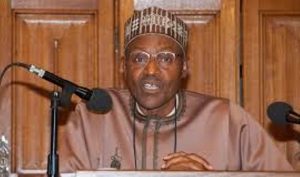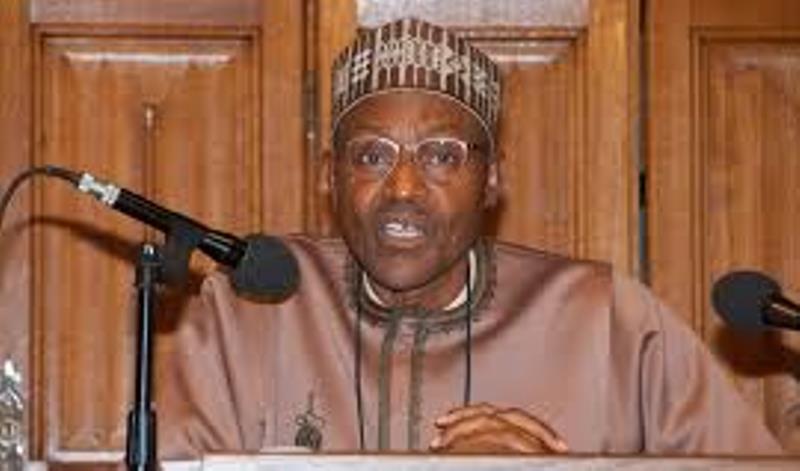… experts say government requires more than N221.7bn to fully address the nation’s huge health challenges

LAGOS – Hope for a dramatic improvement in Nigeria’s healthcare delivery system this year appears to have been deemed by the lean 2016 budgetary allocation to the sector as presented recently to the national assembly by President Muhammadu Buhari.
Analysis of the budget by experts, conducted by NHO, shows that the government would require far more than the N221.7bn allocated to the sector, which is far less than the N262bn and N264.5bn allocated to health in 2014 and 2015 respectively, to adequately tackle the huge problems in the sector, unless a huge chunk of the-N1.8 trillion allocated for 2016 capital expenditure, is channeled to healthcare.
“That is the only way that the tall dreams of “Change” agenda can be actualized in the sector. For now, it is unclear how the capital budget will be spent and what amount would be allocated to health. But there should be more focus on the Primary Health Centre (PHC)’s especially on issues of mother and child”, said Dr. Ben Anyene, Former Commissioner for Health, Anambra State, and Chairman of trustee, Health Reform Organization of Nigeria (HERFON).
With the gradual withdrawal of funding by international donor agencies’ in vital areas such as HIV/AIDS, experts believe the government ought to have injected more funds to the sector to be able to achieve at least the health components of the UN Millennium Development Goals (MDGs).
For instance, Mr. Aminu Garba, Cordinator of African Health Budget Network (AHBN) told NHO that there is need for the country to secure domestic funding for the PHC’s and for vaccination so that progress made in averting deaths from vaccine-preventable diseases such as measles, polio, will not be reversed.
Presently, the sector is beset with poor access to public health care, high out-of-pocket spending on health, and lack of health facilities while diseases such as diabetes, tuberculosis, HIV/AIDS are still major issues.
Prior to the release of the budget, the new administration made a lot of promises regarding the health sector. Last October, for instance, President Buhari pledged his commitment to the implementation of the National Health Act (NHA). The Act requires one per cent of the nation’s consolidated revenue fund to be allocated for basic health care necessities. However, the modalities for the implementation of this Act and the release of the fund are yet to be released.
Following the de-listing of Nigeria from the group of polio-endemic countries last year, President Buhari, while receiving the certificate, also promised that the country would maintain this zero-level status. But this, according to experts, will not come cheap, as it will entail stepping up the nation’s national immunization programme, a viable step that will ensure reduction of under-five deaths from preventable diseases. Already, the cost of vaccines for immunization and its services this year has been pegged at $1.4 billion (about N275.8 billion at N197 per dollar), according to International Vaccine Access Centre (IVAC) Consultant, Dr. Shola Molemodile.
NHO can tell that the National Primary Health Care Development Agency (NPHCDA) has only secured about $148 million (about N39.4bn) of the money from Gavi – the Global Alliance for Vaccines Initiative, which helps procure and move vaccines around the world. Getting an additional $66 million (about N19.6 billion) approved by the federal government for vaccination however seems an uphill task, if the pattern of budgetary funds release in previous budgets is anything to go by.
“Releasing the allocated budget is what matters most right now. If you look at last five years, only N2.6 billion has been allocated for vaccine in the country, and at the end of the day, the money will not be released”, Mr. Garba, disclosed at a workshop on budget implementation organized recently by AHBN in Lagos. According to Garba, the health budget alone cannot be enough to finance immunization. “We need to look at innovative ways of raising money. Every government, at state and local government level needs to allocate money for immunization”, he added.
Last December, the Minister of Health, Prof Isaac Adewole, announced that the federal government had concluded arrangements to build 10,000 primary health facilities in the 774 local government areas across the country. He also announced that plans were ongoing to ensure that targeted 60 million poor Nigerians would enjoy unfettered medical care under Buhari’s government within the next two years.
But Dr. Anyene believes the nation should also be told the concrete measures being taken to ensure that the declaration would not be mere talks.
“We need to know how much money has been budgeted for it. Under President IBB’s administration, N50 million was budgeted for one PHC. If you use this as measurement, N50 multiplied by 10,000 should be N500, 000 million. We need to know if they have that kind of money on ground’, he said. According to Anyene, only few PHC’s are working in the country so, resources ought to be channeled to their maintenance and improvement of manpower.
Although the health budget is still below the 15 per cent agreed at the Abuja Declaration, The National President, Guild of Medical Directors (GMD), Dr. Tony Philips believes that the budgetary allocation may not even be the main issue but rather, the management of the meager resource at hand.
“We are happy that there is concentration on the PHCs and the grassroots, but there is need for manpower. The nurses are short of rural staff. During the midwives scheme years back, government was owing so much that the nurses posted to rural areas ran away from the PHC’s. If they want to see result, they should create an enabling environment for private sectors to come on board and participate in all the committee’, he said.

